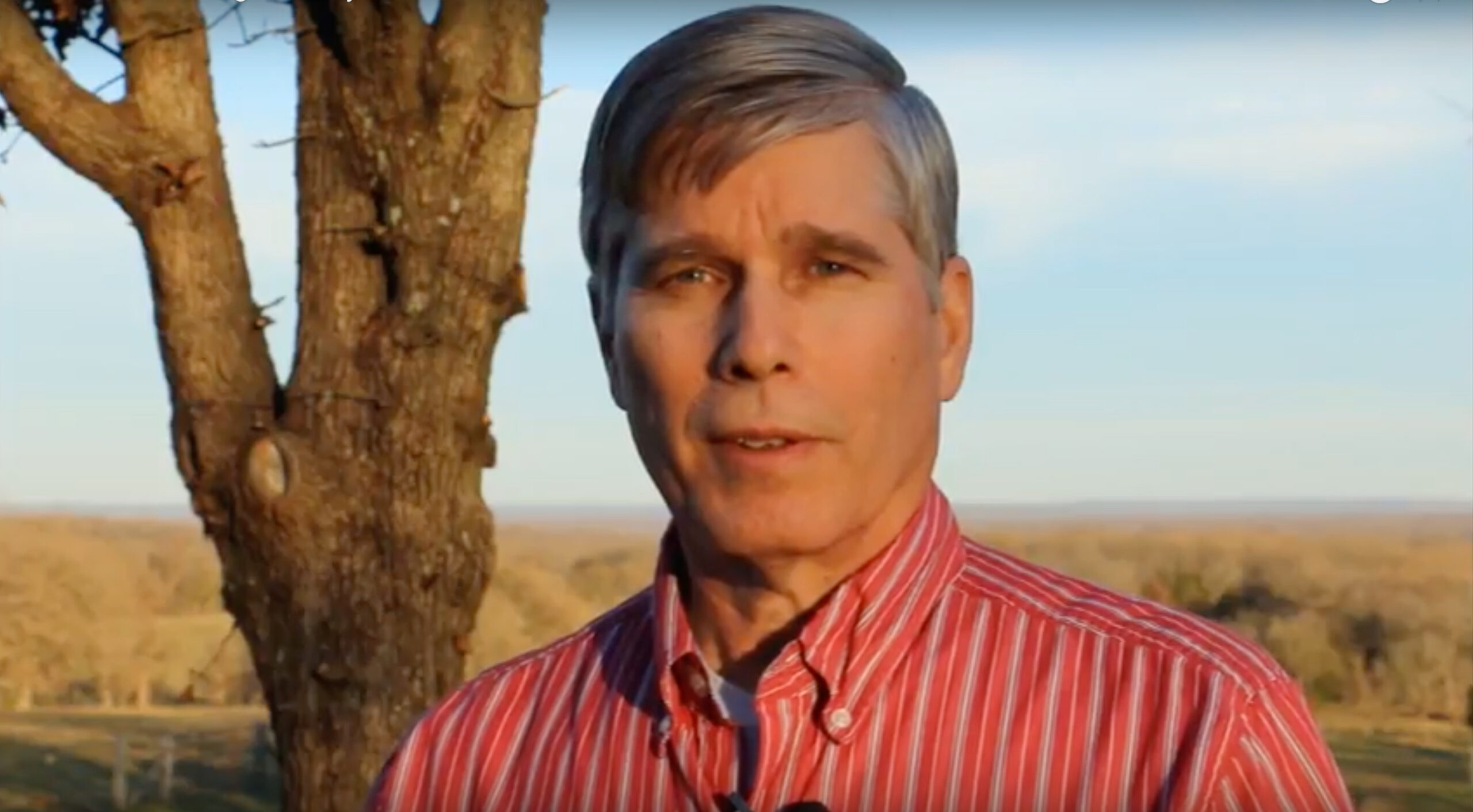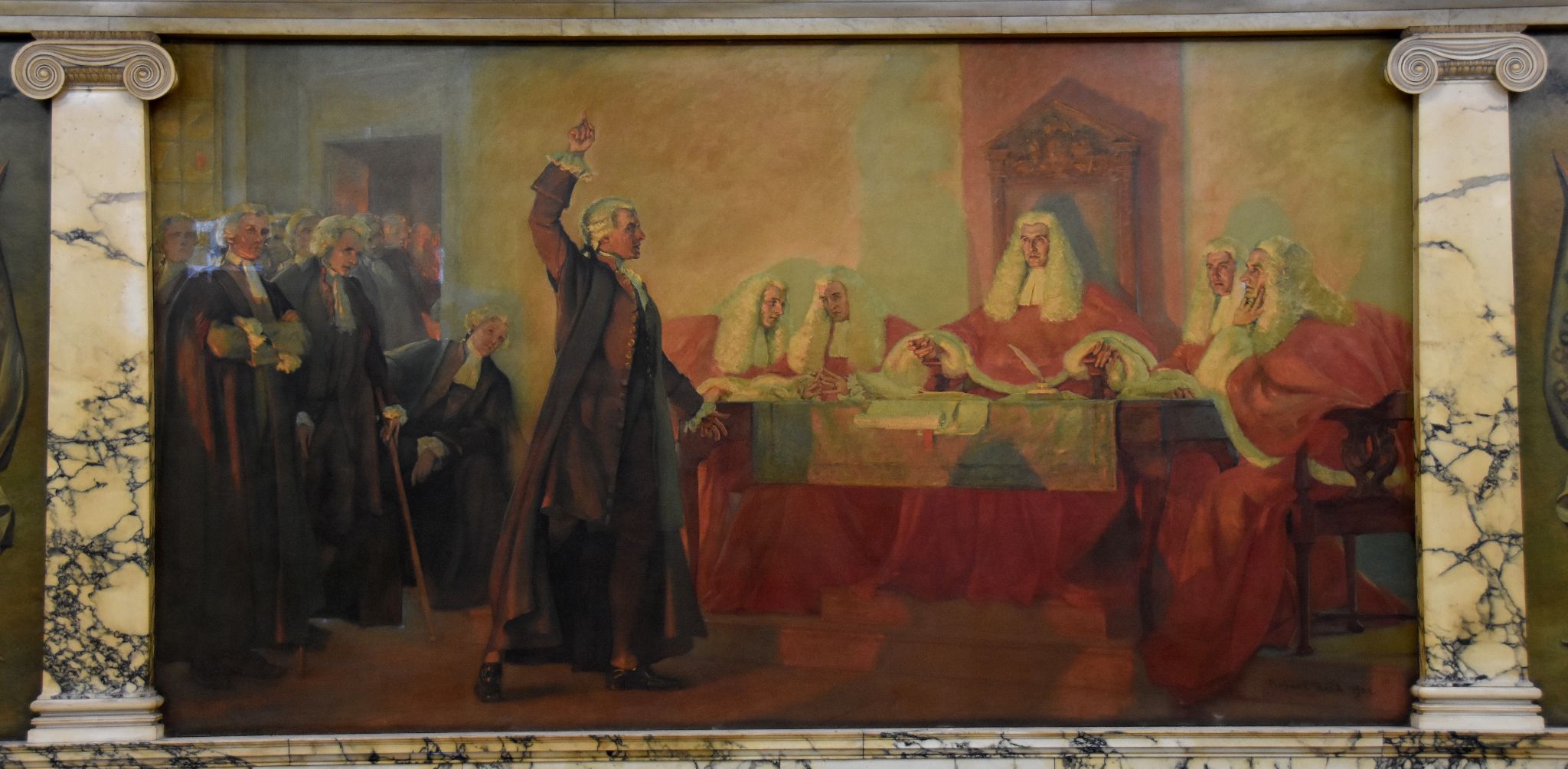FOR IMMEDIATE RELEASE: CONTACT: Dave Roland
July 26, 2019 (573) 567-0307
Eighth Circuit: Farmers Surrender Fourth Amendment Rights When Driving Their Own Trucks
Mexico, Missouri—Today a three-judge panel of the Eighth Circuit Court of Appeals ruled that a person surrenders their Fourth Amendment protections against unreasonable searches and seizures simply by getting behind the wheel of any vehicle the state defines as a “commercial vehicle” – and that this applies to farmers who use farm trucks to transport their own property.

Ron Calzone owns a small horse and cattle ranch in Maries County, Missouri. He has a large farm truck that he occasionally uses to transport materials for his farm, but he never uses the truck to transport anyone else’s property and he never takes the truck more than fifty miles from his ranch. Because his truck is registered as a farm vehicle, he cannot use his vehicle “for hire,” and although his truck must comply with the same general laws that apply to all larger vehicles, he is exempt from almost all of the regulations that apply to professional commercial truckers. One afternoon, as he was driving the truck to get gravel for his daughter’s chicken coop, a highway patrol officer stopped Calzone and demanded permission to inspect the vehicle. The officer acknowledged that he had not observed Calzone violating any laws, but identified a Missouri statute that allows highway patrol officers to stop and inspect almost any vehicle at any time and at any place along the state’s highways or interstates, “with or without probable cause” to believe that any law has been violated.
Calzone sued, arguing that the Fourth Amendment prohibits unreasonable searches and seizures, and that a search and seizure is necessarily unreasonable where no wrongdoing is suspected.

“One of the primary grievances the revolutionary generation had against the British Crown was its reliance on ‘writs of assistance’ that allowed the suspicionless search of private property,” Calzone explained. “The power to randomly stop and search a vehicle is antithetical to the Fourth Amendment, which was adopted as a direct response to these general warrants. Our Founders considered suspicionless searches the worst kind of arbitrary intrusion into citizens’ liberty.”
The government responded that the U.S. Supreme Court has justified suspicionless searches of private property being used in connection with industries that are so pervasively regulated that a participant in that industry must necessarily waive their Fourth Amendment protections. The government further contended that, even though Calzone is plainly not in the heavily-regulated business of transporting people or property for hire, simply driving a truck that state law defines as a “commercial motor vehicle” makes one a part of the “commercial trucking industry,” thus waiving one’s Fourth Amendment protections.
Eighth-Circuit-Opinion-7.26.2019Today, the Eighth Circuit agreed with the government’s position. Judge Steven Colloton wrote that even for a person like Calzone who is only transporting their own property, if the vehicle they are driving is subject to “regulations that include height, weight, and length restrictions, licensing standards, state-conducted inspection requirements, and safety standards,” they have waived the Fourth Amendment’s protections to the extent that law enforcement officials may stop and search their vehicle without any suspicion of wrongdoing.
“The implications of this opinion are extraordinary,” said Dave Roland, Calzone’s attorney and director of litigation for the Freedom Center of Missouri. “Every vehicle on the road is subject to size and weight limits, licensing requirements, inspection requirements, and safety standards. Under longstanding Missouri law, every half-ton pickup truck is, by definition, a ‘commercial vehicle’ regardless of who is using it or how it is being used.”
Because the Eighth Circuit’s opinion unjustifiably extends the “closely regulated industry” exception far beyond those entrepreneurs who voluntarily sacrifice their privacy in exchange for the opportunity to profit from doing business in a heavily-regulated industry, Calzone and the Freedom Center will ask the U.S. Supreme Court to review the case.

“Today’s opinion shows that lower courts are turning what the Supreme Court intended to be an exceptionally narrow, carefully limited exception to the Fourth Amendment’s protections into a liberty-destroying rule,” Roland insisted. “That endangers the very idea of constitutional freedom for all Americans. We will ask the Supreme Court to clarify that the Constitution prohibits government officials from engaging in suspicionless stops of ordinary citizens who have not voluntarily chosen to do business in a pervasively-regulated industry.”
Founded in November 2010, the Freedom Center of Missouri is a non-profit, non-partisan organization dedicated to research, litigation, and education in defense of individual liberty and constitutionally limited government. The Freedom Center is one of Missouri’s leading legal advocates for citizens’ right to be free from unreasonable searches and seizures.
Additional information about the Freedom Center’s mission, cases, and activities can be found online at www.mofreedom.org.
# # #

